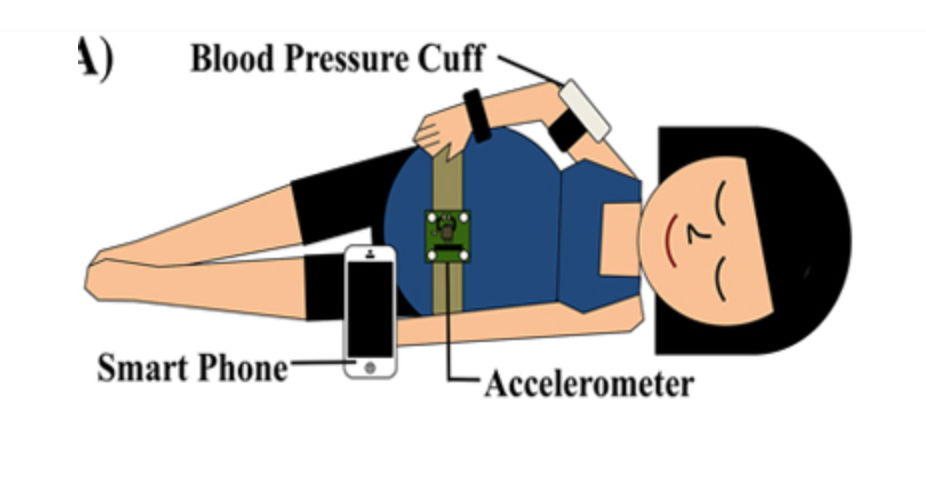Purdue’s Craig Goergenhas developed a sensor-based supine pressor test to detect preeclampsia.
The technology measures and notes the difference between a pregnant woman’s diastolic blood pressure while in two different positions, using a BP wrist cuff and accelerometer on the stomach.
The two devices are connected to an app which guides the wearer, and ensures that the readings are taken in correct positions. Diastolic pressure differences are the definitive way to detect preecamplsia, which according to the researchers, can be seen and treated earlier with the simple system.
Click to view Purdue video
